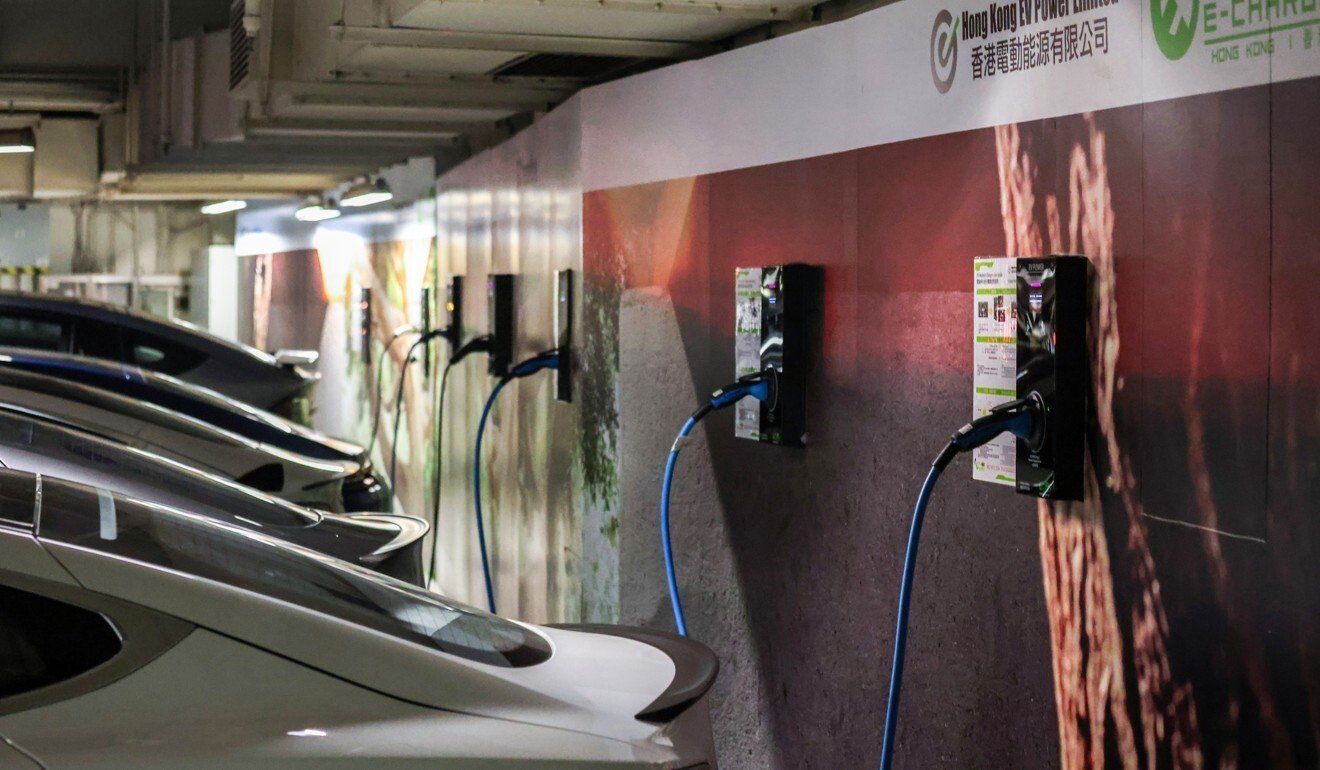Hong Kong News

Road map lays out Hong Kong’s vision for electric vehicles in city
Hong Kong plans to power ahead with its adoption of electric vehicles, more than doubling the number of charging facilities in the next four years and gradually converting petrol stations.
Unveiling a new road map on popularising electric vehicles (EVs), environment chief Wong Kam-sing said on Wednesday the government aimed to phase out new purchases of petrol cars by 2035 with the ultimate goal of being carbon neutral by 2050.
The ambitious timeline would put the city 10 years ahead of mainland China.
“The intention of the road map is to provide a very clear direction with a timeline for everyone in town to consider how to meet the carbon neutrality target by 2050,” he said.
“There are many challenges, I have to admit. But the intention is clear, we want the city to become carbon neutral, to provide clean air and to make Hong Kong a smart city.”
Over the past decade, the number of electric vehicles locally has grown from just 184 to more than 18,600, with some 3,350 public charging spots citywide. The government will review the goal and progress on EV adoption every five years.
Under the blueprint, the government will roll out a host of measures to make full adoption of electric vehicles a reality, including expanding the charging network, training of technical and maintenance workers, and formulating a producer-responsibility scheme for dealing with old batteries.
Among the measures, private charging facilities would be doubled from the existing 68,000 to 150,000 by 2025, while public charging slots would be increased to more than 5,000.
Wong said the government was also studying whether parking spaces in new private buildings should be required to have charging infrastructure.
Deputy Director of Environmental Protection Owin Fung said petrol stations would gradually be turned into quick charging stations in five to 10 years.
“For the medium to long term, we have to locate and identify more sites to turn those sites into quick charging stations,” he said. “It’s very critical for the whole community to be equipped and well prepared for EVs in the future.”
Wong revealed that in around 2025, fees would be imposed for vehicle charging at government car parks.
“The purpose of charging fees is to achieve better use of resources as a lot of e-car owners have occupied public parking spaces for a long period.” he said. “This could help marketisation of charging services with a view to promoting its sustainable development in the long run.”
 The government wants to introduce a producer-responsibility scheme to cover the disposal of old EV batteries.
The government wants to introduce a producer-responsibility scheme to cover the disposal of old EV batteries.
For the adoption of commercial EVs, Fung said the government would set a way forward and timetable in 2025 and was for now focused on conducting trials involving public transport such as buses and minibuses, and goods vehicles.
Trials for double-decker buses would be rolled out next year under a new energy transport fund.
The government would also strive to legislate a producer-responsibility scheme in the next few years to cover the disposal and recycling of old EV batteries.
Green group WWF Hong Kong said it was pleased to see the government’s vision of zero carbon emissions and supported the plan to gradually phase out fuel-propelled private cars by 2035.
“Less than 1 per cent of the electricity in Hong Kong currently comes from renewable energy. To meet the decarbonisation target and effectively tackle the climate crisis, the city’s electricity needs to be generated from renewable resources such as solar and wind energy,” said Karen Ho, WWF Hong Kong’s head of corporate and community sustainability.
“WWF urges the government to plough more resources into meeting a recommended 10 per cent renewable energy target by 2030 by expanding use of renewable energy supply.”











